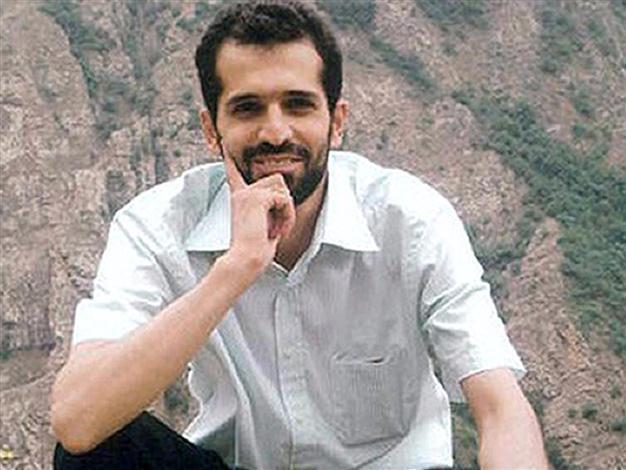Iran blames CIA, Mossad as it buries slain scientist
TEHRAN - Agence France-Presse

An undated handout file picture obtained from the Iranian Fars News Agency shows Iranian nuclear scientist Mostafa Ahmadi-Roshan. AFP Photo
Iran accused Israel and the United States of killing one of its top scientists as part of an increasingly contentious campaign against its nuclear programme as it prepared to bury him on Friday.
Mostafa Ahmadi Roshan, a deputy director of Iran's main uranium enrichment plant, was killed on Wednesday when two men on a motorbike slapped a magnetic bomb on his car while it was stuck in Tehran traffic.
His funeral was to be be held after midday prayers, state media reported.
Iran's supreme leader, Ayatollah Ali Khamenei, said the "abominable" and "cowardly" killing was committed "with the planning or support of the intelligence services of the CIA and Mossad," of the United States and Israel.
He said in a statement his country would "continue with determination" its nuclear activities, which Western governments suspect mask a drive for a weapons capability despite Tehran's repeated denials.
Some media close to Iran's conservatives have called for "retaliation" against Israeli officials. The Iranian government has demanded that the UN Security Council condemn the "terrorist" killing.
The United States has strongly denied it had anything to do with the assassination, although Defence Secretary Leon Panetta admitted: "We have some ideas as to who might be involved." The prime suspect is widely seen as Israel, as it was in the murders of three other Iranian scientists in similar circumstances over the past two years. Israel, though, has a policy of not commenting on intelligence matters.
Asked in a CNN interview on Friday if Israel was involved in Wednesday's assassination of a nuclear
scientist in Tehran, President Shimon Peres said: "Not to the best of my knowledge." US President Barack
Obama spoke with Israeli Prime Minister Benjamin Netanyahu the day after the scientist's murder to discuss developments in Iran.
The United States has been leading a campaign to bring Iran's economy to its knees by slapping unilateral Western
sanctions on its vital
oil exports.
Obama last month signed a law targeting Iran's central bank, which clears most of the oil payments, and US envoys have been fanning out in recent days to convince other nations to come on board or risk seeing their firms barred from doing business in
America.
The aim is to "close down" Iran's central bank, said a senior US official speaking on condition of anonymity.
Companies from China, Singapore and the United Arab Emirates have already been hit for failing to meet the terms of the new US sanctions, the US Treasury Department said on Thursday.
EU foreign ministers are to meet on January 23 to consider new sanctions including action against the central bank and a proposed ban on Iran oil imports that may be phased in over months to avoid hurting struggling eurozone economies.
But Iran's two main allies on the world stage, Russia and China, have expressed strong criticism of the new Western measures and remain adamantly opposed to any new UN sanctions.
"Additional sanctions against Iran, as well as potentially any military strikes against it, will unquestionably be perceived by the international community as an attempt at changing the regime in Iran," Russian Deputy Foreign Minister Gannady Gatilov said on Friday.
"This line of action undermines the international community's efforts at resolving the Iranian nuclear problem," he was quoted as saying by the Interfax news agency.
Even some US allies -- those that rely significantly on Iranian oil -- are proving reluctant.
"The United States would like to impose sanctions. We believe it is necessary to be extremely circumspect about this matter," Japanese Foreign Minister Koichiro Gemba told a press conference on Friday.
Iran has met the covert killings and the sanctions push with defiance, starting production at a new plant able to enrich uranium closer to the threshold that could be used in nuclear bombs.
It has also warned that, if attacked or stangled by sanctions, it could close the Strait of Hormuz at the entrance to the Gulf -- a chokepoint for 20 percent of the world's oil.
The United States has warned that that would be a "red line" that Iran should not cross, and it has sent two aircraft carriers to waters near the Gulf to replace one that Iran's military had warned away as it wound down its deployment.
nucler, nukes, USA, petroleum,
